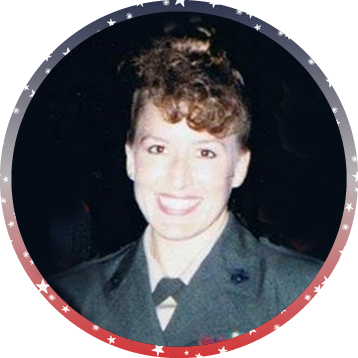Overview
U.S. Immigration and Customs Enforcement welcomes, values and seeks out America’s veterans to build an inclusive and representative workforce. The veterans of ICE carry out the agency’s mission with the same bravery and selflessness as they did while serving the United States in the armed forces.
Veterans represent some of the best people in our nation, and their unique experiences bring tremendously valuable skills to ICE. By helping veterans to transition to civilian careers, we aim to fulfill our obligation to give back to those who have given so much for us.
Veterans Day is a time to pay respects to those who served. Military veterans at ICE exhibit a lifelong commitment to securing our country against threats to the homeland. See how veterans continue their commitment to the United States and contribute to ICE’s workforce:

How Veterans Contribute to ICE
Vets make up about one-third of ICE’s workforce, bringing useful skills, innovative ideas and fresh perspectives to our organization. Thousands of our veterans work in:
- Homeland Security Investigations. Known as HSI, this division investigates transnational crime and threats. It’s the arm of the agency responsible for targeting criminal and terrorist organizations that exploit international trade, travel, finance, customs and immigration laws. About half of all vets working for ICE are part of HSI. Through initiatives such as the Human Exploitation Rescue Operation Child-Rescue Corps (HERO) program, HSI provides many opportunities for veterans to transition from active duty to law enforcement careers.
- Enforcement and Removal Operations. Referred to as ERO, this branch of ICE upholds immigration law within, beyond and along U.S. borders. Officers in ERO are on the front lines; they seek out and remove threats to public safety, including gang members and people who violate immigration law. It’s also home to the ICE Health Service Corps, highly trained and experienced health care providers (including doctors, dentists and behavioral health practitioners) and support staff who provide care and advocate for the vulnerable ICE detainee population. Nearly half of all ICE’s veterans are part of ERO.
- Management and Administration. Employees in M&A support ICE’s mission in critical administrative and managerial positions, including those who work in the Office of the Chief Financial Officer, Office of Human Capital, Office of Acquisition Management, Office of the Chief Information Officer, Office of Leadership and Career Development, Office of Information Governance and Privacy and the Office of Investment and Program Accountability. Approximately 3% of ICE’s veterans fall under M&A.
- Office of the Principal Legal Advisor. Known as OPLA, this office is ICE’s legal arm; it employs attorneys and support staff. OPLA is responsible for litigating removal cases on behalf of the Department of Homeland Security, providing legal counsel on all aspects of U.S. law, and representing the agency in other cases. Just over 4% of ICE’s veterans serve in OPLA.


Jeni Hill, MPA, MSM, PMP
South Region Branch Chief, IT Operations Division
Branch Chief Jeni Hill dedicated 17 years to the U.S. Marine Corps as an enlisted service member and officer. After leaving the USMC in 2005, Hill joined forces with ICE. "I want to do what I can to protect our great Nation against those who wish us harm and to protect the freedoms we enjoy,” says Hill.
ICE Jobs for Veterans
ICE actively recruits veterans for all positions within the agency. You may be eligible for special programs available only to vets, including paid internships and special hiring authorities for disabled vets. You may also be entitled to use veterans’ preference points to give you an edge in hiring.
For more information on how you can help shape ICE’s future by sharing your skills, knowledge and expertise to our organization, visit our page on federal jobs for veterans. You can also keep up with ICE career-related information by subscribing to email updates.
Fast Facts About Veterans at ICE
Around one-third of ICE’s workforce comprises veterans, and of those:
- 94% are between the ages of 25 and 59
- 40% are deportation officers or deportation and detention officers
- 30% are criminal investigators or intel research specialists
- Approximately 15% of the military veterans at ICE are women and 85% are men









